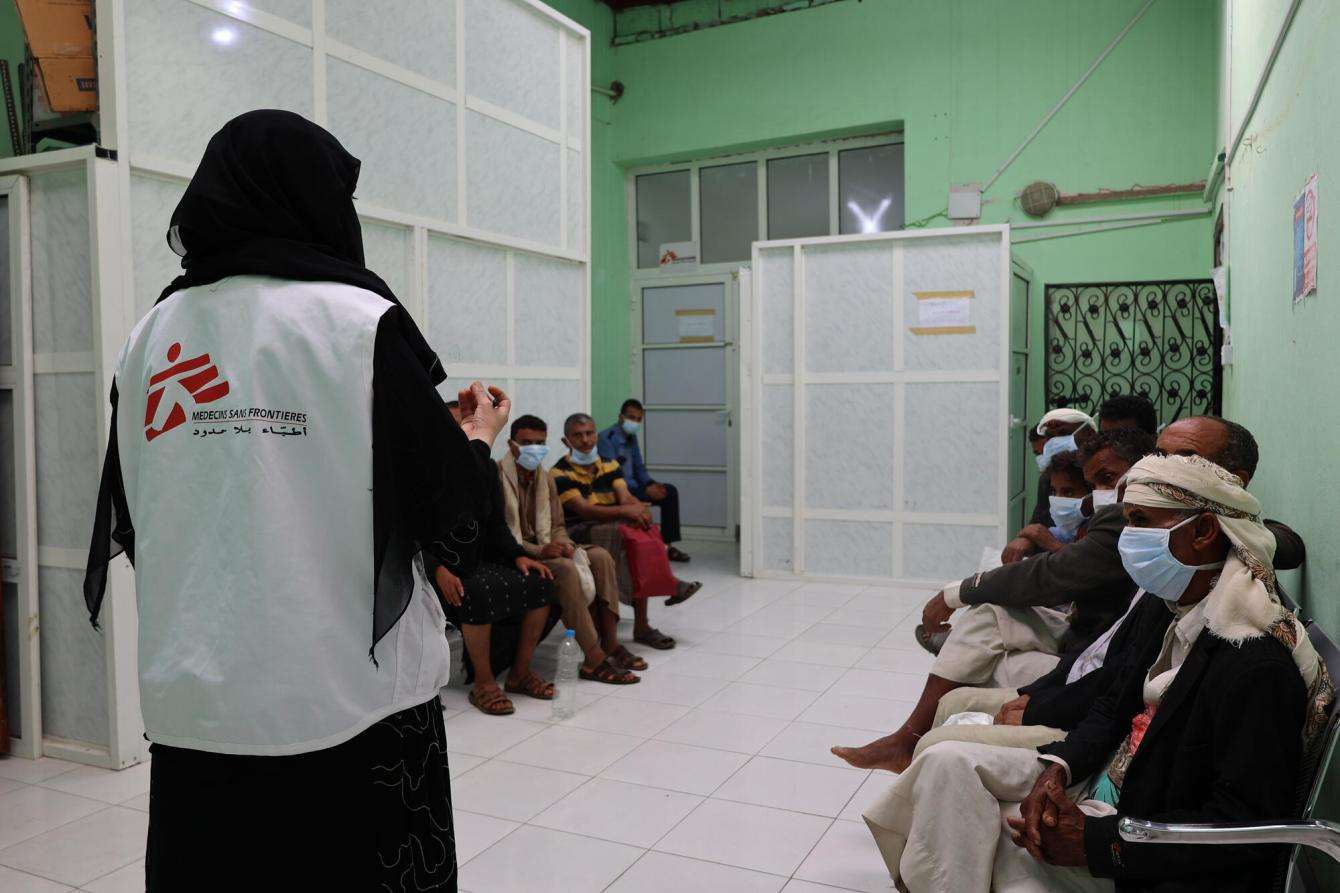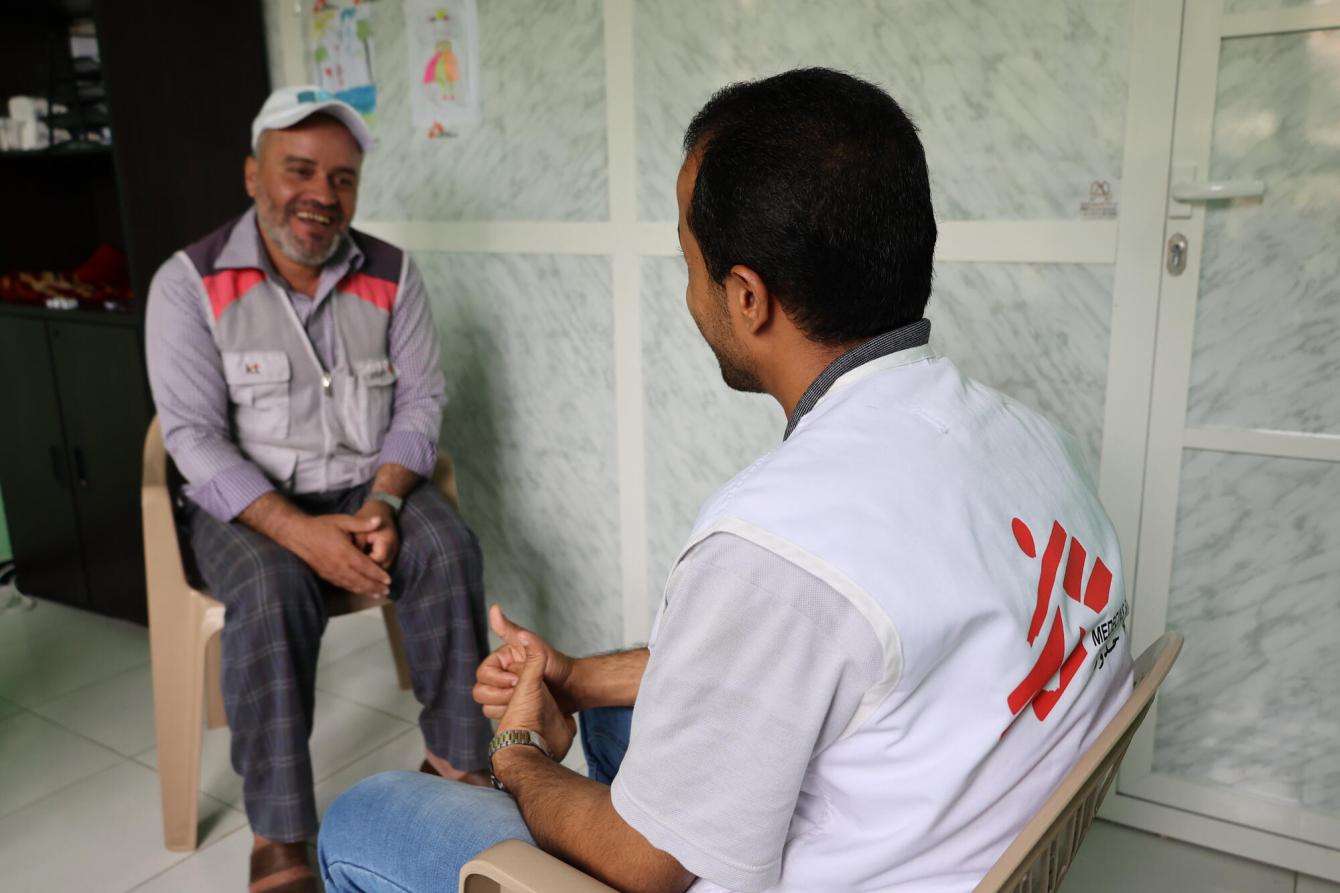Now in its eighth year, the war in Yemen has destroyed homes, cost lives, displaced thousands of people, and deteriorated economic and living conditions. All of this has taken a toll on survivors’ mental health.
For many people who already suffered from chronic mental health disorders before the war, the conflict and a lack of access to mental health services have significantly exacerbated their conditions.
Doctors Without Borders/Médecins Sans Frontières (MSF) teams, in collaboration with the Ministry of Health, provide a holistic mental health program at the Al-Gomhouri hospital in Hajjah, a city in the northwest of the country. The program includes psychological care, psychiatric treatment for severe mental health disorders, and psycho-education group sessions.

Abdul Karim, 48, is a father of four. After experiencing a traumatic event, he lost his ability to work and support his family and isolated himself. He started to suffer from extreme fear and anxiety.
“I started to question everyone around me. I couldn’t trust anyone,” he said. “I was lost and felt that life wasn’t worth living anymore.” “When I discovered that MSF provides mental health care in Hajjah, I started coming to the clinic every month and I have been going there for the past two years,” he said.
“We receive patients suffering from various mental health disorders,” said Aura Ramírez, MSF’s mental health activity manager, “with symptoms ranging from mild to severe, such as anxiety, depressive episodes, post-traumatic stress disorder, and behavioral problems—and we provide them with psychosocial care.
However, most patients arrive with severe conditions, such as major depression, psychosis, and bipolar disorder that require psychiatric treatment in addition to psychological care. These cases account for 70-80 percent of our patients.”
Fatima*, a 33-year-old mother of five, suffered from severe hallucinations and constantly heard voices that made her cry, scream, and act violently with her children. Sometimes, she couldn't even recognize them.
She and her husband divorced due to her mental health condition and she moved from Sana’a to her parents' house in Hajjah.
“I was a hopeless case. No one accepted me,” said Fatima. “I sat in the dark most of the time, and it was an absolute headache for my family. I turned their joy into sorrow on any occasion.”

Most people with mental health issues in Yemen often seek support and treatment at a late stage when their symptoms have already impacted their lives and their families' lives. This can be attributed to many factors.
“Many patients don’t recognize the early symptoms and only become aware of them at a later stage,” said Muaadh Abdul-Ghani Al-Samawi, MSF’s mental health supervisor in Hajjah. “This is largely due to the lack of awareness of mental health disorders.
Some associate mental issues with jinn [spirits] and sorcery and resort to other traditional means before seeking support at the clinic. Linking mental illness to madness and stigmatization also further discourages the patients and their families from seeking help.”
The MSF mental health clinic in Hajjah receives about 400 patients per month. Men account for around 70 percent of the patients, which indicates that there are challenges to accessing mental health services for women, possibly related to social and family restrictions.
Women need the support of their husbands or families to receive treatment. In response, our teams work to raise awareness and highlight the importance of mental health care in the communities by conducting regular education sessions in various departments of Al-Gomhouri hospital for the patients, their families, and visitors.
“I consider this place as my second home. These people are my family,” said Abdul Karim, who now participates in the men's group sessions at the care center. “It changed my life. I am no longer the person I was a few years ago. I got my job back, and my life is back on track.
After having isolated myself for so long, I started taking walks and visiting my friends and family. I attend these sessions three times per week. My story is living proof that hope still exists.”
*Name changed to protect identity




